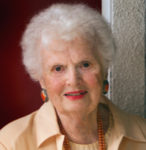
LA JOLLA, California — Humans have always been storytellers, whether around a firepit in some jungle or around a fireplace in an urban apartment, the children and grandchildren listen to the stories. They learn the sagas of their parents, their grandparents, and their grandparents’ grandparents, who became Indian chiefs or generals or were jailed and escaped or who started a business or a university.
The holidays give us an opportunity to make family connections and reflect on our heritage—telling the stories about our parents, grandparents and distant relatives as well as sharing memories of our own childhoods. This could be an opportune time to ask our children and grandchildren to talk about an event of their lives that they wish to remember to maybe pass on when they have children of their own. This is how we connect with our ancestors, the story of our genes, where we came from, and how we became who we are.
Now there are new dimensions to our stories: searches on Ancestry.com or 23andMe. We can go further back when looking for relatives with whom we share a percentage of our DNA. Second and third cousins appear on a page; we respond, and sometimes we meet. This is how I met Jeff and his wife, Ellen. Was there a strange familiarity to this second cousin? Or was it my imagination or a wish, a hope to find a family member? We both felt an instant connection, and it made us happy.
There is a need to know where we come from, a curiosity about our heredity, what and who has contributed to our nature and personality. Some adopted children are curious about their biological parents; now with open adoptions, they can find and possibly connect with them.
Besides the pull to find out where we fit into our history, there is an equal enticement to leave a history of ourselves—who we are, what we did—to leave that information for our descendants. Some of my columns have been about my life, and somehow putting these memories on paper felt like an important accomplishment; I don’t know why, but some genetic imperative was pulling at me.
There are classes to teach people how to write their autobiographies. Many of my friends are writing about the events in their lives, their accomplishments and failures, both as incentives and warnings for their children, grandchildren, and, for many of us now, great-grandchildren, as well as yet unborn descendants.
Why do we take the time to write about our lives? There is a pleasure in remembering parts of our history. Sometimes it starts making more sense as we connect the dots that had remained elusive. Smaller bits of ourselves remain on papers or computers and in the minds of those who will read these; this is also our immortality. In other words, when we die, we are not totally gone.
Though my children and grandchildren may not always read my columns, their descendants might be interested in this distant, far-away, and long-ago great-great-great-grandmother. I wish I knew about my grandmother’s mother who lived in Russia. What was life like then?
I have a photo of my father’s father standing by a bed in the orphanage he endowed in Kaunas, Lithuania. When I was born, there was a bed in my name. I was always both touched by and proud of this. To celebrate my birth, an uncle planted a tree in Israel. I know there is no tree with my name, but I like the idea of a tree planted for me.
There is also pride in a famous ancestor. I hear my friends talk of being related to someone renowned; it enhances their self-esteem and adds to their identity. I love looking at the photo of my grandmother, who was an opera singer in Moscow, dressed in her costume as Aida in the 1800s.
My mother often talked with longing about her older brother Boris, who never made it out of Russia when the rest of the family escaped the Communists. During a trip to Moscow years later, we visited with his daughter Natacha and various cousins. A strong emotional feeling overwhelmed everyone. We all hugged with smiles and tears—we were family! My mother even sponsored her brother’s grandson Viktor to come to America; they felt a familial kinship with each other all their lives.
We are each positioned between our history and the future of our genetic inheritance. We are the remnants of our ancestors’ DNA, and fragments of our DNA will continue on through our descendants. The links from our distant past continue on into the equally distant, unknowable future.
© Natasha Josefowitz. This article appeared initially in the La Jolla Village News. You may comment to natasha.josefowitz@sdjewishworld.com